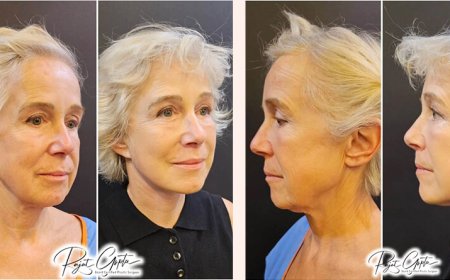Is it Worth Replacing a Single Tooth with a Dental Implant?
Understand the benefits, costs, and long-term value of single tooth dental implants versus other options for tooth replacement.

Losing a single tooth is more than just a cosmetic concern. It can impact your ability to chew properly, affect your speech, and even influence your confidence when smiling. With several replacement options available, the choice can feel overwhelming. One popular method is the dental implant, a solution designed to closely mimic a natural tooth. But is it worth the investment for just one missing tooth? This post will walk you through everything you need to know about dental implants, helping you make an informed decision.
What Is a Dental Implant?
A dental implant is essentially a small titanium post surgically placed into your jawbone. It acts as an artificial root for a replacement tooth, typically topped with a crown designed to look and function like a natural tooth. The implant integrates with the bone over time through a process called osseointegration, providing a stable foundation.
Why Consider a Dental Implant for a Single Tooth?
Dental implants have become increasingly popular due to their many advantages, especially when compared with other replacement options like bridges or dentures. Here are some key reasons why a dental implant might be the right choice:
- Preserves Jawbone Health:When a tooth is lost, the bone around the missing tooth begins to shrink, leading to changes in facial structure. Implants stimulate the bone, helping maintain its density.
- Protects Adjacent Teeth:Unlike a bridge, which requires shaving down neighbouring teeth for support, an implant stands independently without affecting other teeth.
- Durability:Implants are long-lasting, often lasting decades with proper care, unlike bridges or dentures that may need replacement or repair over time.
- Natural Look and Feel:The crown attached to the implant is customised to match your other teeth, providing a seamless appearance and natural bite function.
Alternatives to Dental Implants for Replacing One Tooth
Its important to consider all options before deciding:
Dental Bridges
A dental bridge involves placing crowns on the teeth adjacent to the gap, with a false tooth anchored in between.
- Pros:Usually quicker to complete, often less costly initially than implants.
- Cons:Requires altering healthy neighbouring teeth, may contribute to bone loss where the tooth is missing, and generally has a shorter lifespan than implants.
Removable Partial Dentures
These are designed to be taken out and cleaned, supported by clasps on surrounding teeth.
- Pros:Least invasive and often the most affordable initial option.
- Cons:Can be uncomfortable, less stable than implants or bridges, and require ongoing adjustments.
How Much Does a Single Tooth Implant Cost?
The cost of a single tooth dental implant in the UK typically ranges from 1,500 to 2,500. This includes the surgical placement of the implant, the abutment (connector piece), and the crown.
While the price is higher than other options upfront, implants often provide better value in the long term because they do not require the ongoing replacements or repairs common with bridges and dentures.
The Implant Procedure: What to Expect
If you choose to go ahead with a dental implant, heres a basic overview of the process:
- Consultation and Examination:Your dentist will assess your overall oral health, take X-rays or 3D scans to evaluate bone quality and structure, and discuss the best treatment plan. Adentist in Boltoncan offer this personalised assessment.
- Implant Placement Surgery:The titanium post is surgically inserted into your jawbone under local anaesthetic. Some cases may require bone grafting if there isnt enough bone to support the implant.
- Healing and Osseointegration:Over 3 to 6 months, the implant fuses with the jawbone, creating a strong bond. This step is crucial for implant stability.
- Abutment Attachment:Once healed, an abutment is attached to the implant to connect the implant to the final crown.
- Crown Placement:A custom-made crown is fitted onto the abutment, completing the restoration.
Who Is a Good Candidate for a Single Tooth Implant?
Most healthy adults are candidates for dental implants, but suitability depends on:
- Having sufficient jawbone density to support the implant.
- Good oral hygiene and healthy gums free from periodontal disease.
- No uncontrolled chronic health issues like diabetes.
- Commitment to regular dental check-ups.
Risks and Potential Complications
Like any surgical procedure, dental implants carry some risks, but serious complications are rare with proper care:
- Infection:At the implant site, which can be managed with antibiotics.
- Nerve Damage:Causing numbness or tingling, particularly if the implant is placed near nerves.
- Sinus Issues:If the implant is placed in the upper jaw close to sinus cavities.
- Implant Failure:Usually due to poor osseointegration or infection, but this is uncommon
Comparing Longevity and Maintenance
|
Aspect |
Dental Implant |
Dental Bridge |
Partial Denture |
|
Lifespan |
15+ years to lifetime |
515 years |
35 years |
|
Effect on Adjacent Teeth |
None |
Requires grinding |
None |
|
Bone Health Impact |
Preserves bone |
Bone loss likely |
Bone loss likely |
|
Maintenance |
Regular dental hygiene & check-ups |
Careful cleaning, occasional repairs |
Regular adjustments & cleaning |
|
Comfort Level |
High |
Moderate |
Lower |
The Functional and Aesthetic Benefits
Replacing a single tooth with a dental implant does more than fill a gap. Functionally, it restores your ability to chew evenly and speak clearly. Aesthetically, it gives you back a confident smile without worrying about gaps or loose dentures.
Why Choose Professional Care?
Seeking treatment from a qualified and experienceddental Implant Boltonprovider ensures:
- Accurate assessment of your suitability for implants.
- Use of advanced technology for precise implant placement.
- Proper aftercare advice and monitoring.
- A smooth, safe procedure with optimal outcomes.
Conclusion
Deciding whether to replace a single tooth with a dental implant involves weighing the pros and cons carefully. Implants offer lasting durability, protect neighbouring teeth, preserve jawbone health, and provide a natural appearance and feel. While they require a higher upfront cost and a longer treatment timeline than alternatives, their benefits often justify these factors. Consulting a dentist in Bolton ensures a tailored approach that suits your needs. At EDB, we are committed to supporting your oral health with expert care and personalised treatment plans.








































